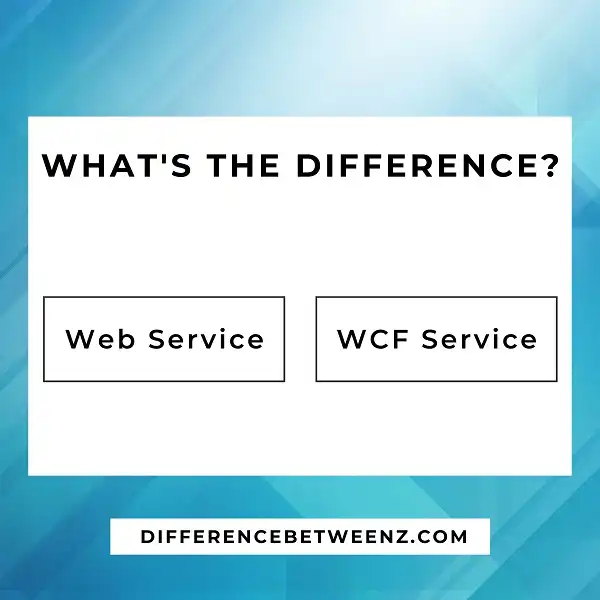There are many different ways to create a web service. In this article, we will compare and contrast two of the most popular methods: web services and WCF. We will discuss the benefits and drawbacks of each approach so that you can make an informed decision about which one is right for your project.
What is Web Service?
Web services are application components Web-based applications that communicate with each other over the World Wide Web. Web services use open standards such as HTTP, XML, and SOAP to provide interoperability between software applications. Web services can be used to exchange data between applications or systems. Web services can also be used to access remote functionality or data. Web services are often self-contained and self-describing, making them easy to discover and use. Web services can be combined to create composite applications. Web services are an important part of Service-Oriented Architecture (SOA).
What is WCF Service?
WCF Service is a framework that allows developers to build interoperable, secure, and reliable services that can be consumed by any client. WCF Services are based on the principles of Service-Oriented Architecture (SOA), which enables loose coupling between services and clients. WCF Services can be hosted in IIS, Windows Process Activation Service (WAS), or self-hosted.
WCF Services can be consumed by any client that supports XMLHttpRequest, including AJAX applications, Silverlight applications, and WCF clients. WCF Services use message-based communication over the HTTP or TCP protocol. WCF Services can be secured using SSL/TLS, IPSec, or Message Authentication Code (MAC). WCF Services can be deployed using Xcopy or MSI.
Difference between Web Service and WCF
Web Service and WCF are two different technologies that can be used to build applications that can communicate with each other over the internet. Web services use a simple, standardized protocol called SOAP to exchange messages between applications. WCF, on the other hand, supports a variety of different protocols, including SOAP, HTTP, and TCP.
In addition, WCF offers a number of advanced features, such as message encryption and reliable messaging. As a result, WCF is generally more suitable for enterprise applications that require a high degree of security and reliability. However, Web services are typically easier to implement and are often sufficient for simple applications.
Conclusion
In this post, we’ve outlined the differences between web services and WCF. We hope that this information will help you make an informed decision about which technology is best for your needs.


